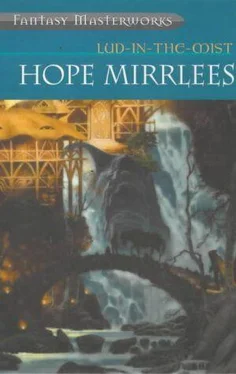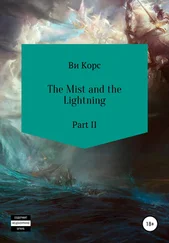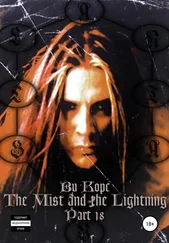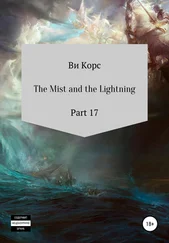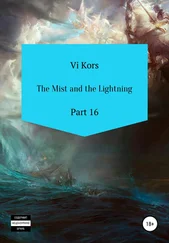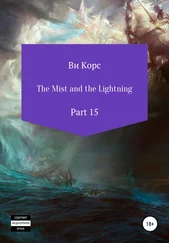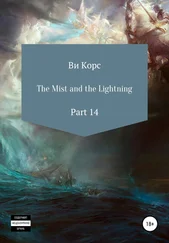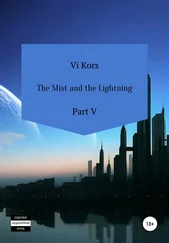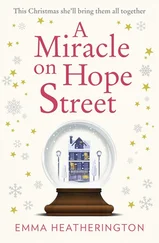So Dame Marigold sent for the good old family doctor, who said there was nothing the matter with him but a little overheating of the blood, a thing very common in the spring; and prescribed sprigs of borage in wine: "the best cordial for lazy scholars," and he winked and pinched Ranulph's ear, adding that in June he might be given an infusion of damask roses to complete the cure.
But the sprigs of borage did not make Ranulph any more attentive to his lessons; while Dame Marigold had no longer need of the tutor's hints to realise that the little boy was not himself. What alarmed her most in his condition was the violent effort that he had evidently to make in order to react in the least to his surroundings. For instance, if she offered him a second helping at dinner, he would clench his fists, and beads of perspiration would break out on his forehead, so great an effort did it require to answer Yes or No.
There had never been any real sympathy between Ranulph and his mother (she had always preferred her daughter, Prunella), and she knew that if she were to ask him what ailed him he would not tell her; so, instead, she asked Ranulph's great ally and confidant, Master Nathaniel's old nurse, Mistress Hempen.
Hempie, as they called her, had served the family of Chanticleer for nearly fifty years, in fact ever since the birth of Master Nathaniel. And now she was called the housekeeper, though her duties were of the lightest, and consisted mainly of keeping the store-room keys and mending the linen.
She was a fine, hale old country-woman, with a wonderful gift for amusing children. Not only did she know all the comic nursery stories of Dorimare (Ranulph's favourite was about a pair of spectacles whose ambition was to ride on the nose of the Man-in-the-Moon, and who, in vain attempts to reach their goal, were always leaping off the nose of their unfortunate possessor), but she was, as well, an incomparable though sedentary playfellow, and from her arm-chair would direct, with seemingly unflagging interest, the manoeuvres of lead soldiers or the movements of marionettes. Indeed, her cosy room at the top of the house seemed to Ranulph to have the power of turning every object that crossed its threshold into a toy: the ostrich egg hanging from the ceiling by a crimson cord, the little painted wax effigies of his grandparents on the chimney-piece, the old spinning-wheel, even the empty bobbins, which made excellent wooden soldiers, and the pots of jam standing in rows to be labelled - they all presented infinite possibilities of being played with; while her fire seemed to purr more contentedly than other fires and to carry prettier pictures in its red, glowing heart.
Well, rather timidly (for Hempie had a rough edge to her tongue, and had never ceased to look upon her mistress as a young and foolish interloper), Dame Marigold told her that she was beginning to be a little anxious about Ranulph. Hempie shot her a sharp look over her spectacles, and, pursing her lips, drily remarked, "Well, ma'am, it's taken you a long time to see it."
But when Dame Marigold tried to find out what she thought was the matter with him, she would only shake her head mysteriously, and mutter that it was no use crying over spilt milk, and least said soonest mended.
When finally the baffled Dame Marigold got up to go, the old woman cried shrilly: "Now, ma'am, remember, not a word of this to the master! He was never one that could stand being worried. He's like his father in that. My old mistress used often to say to me, 'Now, Polly, we won't tell the master. He can't stand worry. ' Aye, all the Chanticleers are wonderful sensitive." And the unexpressed converse of the last statement was, "All the Vigils, on the other hand, have the hides of buffaloes."
Dame Marigold, however, had no intention of mentioning the matter as yet to Master Nathaniel. Whether or not it was due to the Chanticleers' superior sensitiveness of soul, the slightest worry, as she knew to her cost, made him unbearably irritable.
He had evidently, as yet, noticed nothing himself. Most of his day was spent in the Senate and his counting-house; besides, his interest in other people's lives was not extended to those of his own household.
As to his feelings for Ranulph, it must be confessed that he looked upon him more as an heirloom than as a son. In fact, unconsciously, he placed him in the same category as the crystal goblet with which Duke Aubrey's father had baptized the first ship owned by a Chanticleer, or the sword with which his ancestor had helped to turn Duke Aubrey off the throne - objects that he very rarely either looked at or thought about, though the loss of them would have caused him to go half mad with rage and chagrin.
However, one evening, early in April, the matter was forced upon his attention in a very painful manner.
By this time spring had come to all the world, and the citizens of Lud-in-the-Mist were beginning to organise their life for summer - copper vessels were being cleaned and polished for the coming labours of the still-room, arbours in the gardens swept out and cleaned, and fishing-tackle overhauled; and people began to profit by the longer days by giving supper-parties to their friends.
Nobody in Lud-in-the-Mist loved parties more than Master Nathaniel. They were a temporary release. It was as if the tune of his life were suddenly set to a different and gayer key; so that, while nothing was substantially changed, and the same chairs stood in the same places, with people sitting in them that he met every day, and there was even the same small, dull ache in one of his teeth, nevertheless the sting, or rather the staleness, was taken out of it all. So it was very gleefully that he sent invitations to all his cronies to come "and meet a Moongrass cheese" - as he had done every April for the last twenty-five years.
Moongrass was a village of Dorimare famous for its cheeses - and rightly so, for to look at they were as beautiful as Parian marble veined with jade, and they had to perfection the flavour of all good cheeses - that blending of the perfume of meadows with the cleanly stench of the byre. It was the Moongrass cheeses that were the subject of the comic advertisement described in a previous chapter.
By seven o'clock the Chanticleers' parlour was filled with a crowd of stout, rosy, gaily-dressed guests, chattering and laughing like a flock of paroquets. Only Ranulph was silent; but that was to be expected from a little boy of twelve years old in the presence of his elders. However, he need not have sulked in a corner, nor responded quite so surlily to the jocular remarks addressed him by his father's guests.
Master Nathaniel, of course, had a well-stored cellar, and the evening began with glasses of delicious wild-thyme gin, a cordial for which that cellar was famous. But, as well, he had a share in a common cellar, owned jointly by all the families of the ruling class - a cellar of old, mellow jokes that, unlike bottles of wine, never ran dry. Whatever there was of ridiculous or lovable in each member of the group was distilled into one of these jokes, so that at will one could intoxicate oneself with one's friends' personalities - swallow, as it were, the whole comic draught of them. And, seeing that in these old jokes the accumulated irritation that inevitably results from intimacy evaporated and turned to sweetness, like the juice of the grape they promoted friendship and cordiality - between the members of the group, that is to say. For each variety of humour is a sort of totem, making at once for unity and separation. Its votaries it unites into a closely-knit brotherhood, but it separates them sharply off from all the rest of the world. Perhaps the chief reason for the lack of sympathy between the rulers and the ruled in Dorimare was that, in humour, they belonged to different totems.
Читать дальше
